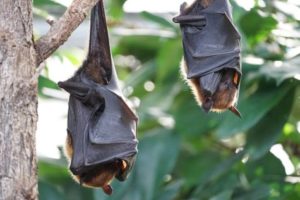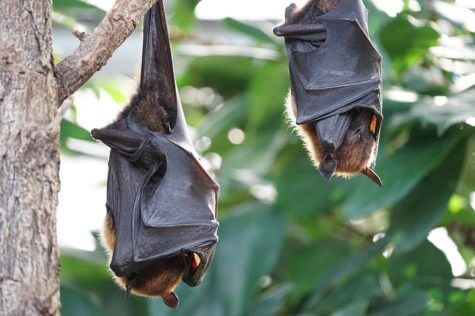TEL AVIV — Humans aren’t the only animals that can acquire highly specialized and complex language forms, it turns out. Zoologists found that young bats use a specific “dialect” unique to their colonies, even if the language is substantially different from that “spoken” by their mothers.
The research, led by Dr. Yossi Yovel at Tel Aviv University, indicates a challenge to the notion that the skill of language acquisition is unique to humans.

“The ability to learn vocalizations from others is extremely important for speech acquisition in humans, but it’s believed to be rare among animals,” Dr. Yovel says in a university media release. “The most common animal models for this ‘vocal learning’ are songbirds, which learn songs from specific tutors. Bird researchers usually emphasize that a bird learns to sing from one parent, but we have shown that bats listen and learn from an entire colony of several hundred bats, not just from their parents. In other words, young bats pick up the dialect vocalized by their surrounding roost-mates.”
Dr. Yovel and his team set up three artificial colonies and raised 14 bat pups with their mothers. They played three specific subsets from a recording of natural bat vocalizations and exposed the pups to these recordings frequently for one year, until the bats reached adulthood. The pups could communicate with their mothers, but instead of developing her language, the pups instead preferred a dialect similar to the recordings they heard.
“The difference between the vocalizations of the mother bat and those of the colony are akin to a London accent and, say, a Scottish accent,” says Yovel. “The pups heard their mothers’ ‘London’ dialect, but also heard the ‘Scottish’ dialect mimicked by many dozens of ‘Scottish’ bats. The pups eventually adopted a dialect that was more similar to the local ‘Scottish’ dialect than to the ‘London’ accent of their mothers.”
The researchers will next study how the acquisition of new dialects affects the bats’ ability to integrate into foreign colonies.
The study was published Oct. 31, 2017 in the journal PLoS Biology.
